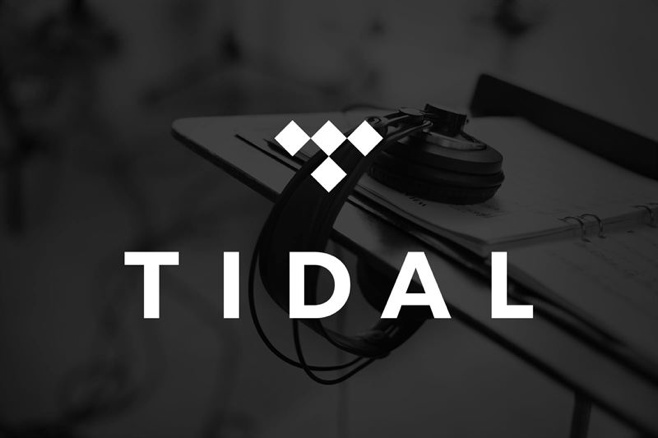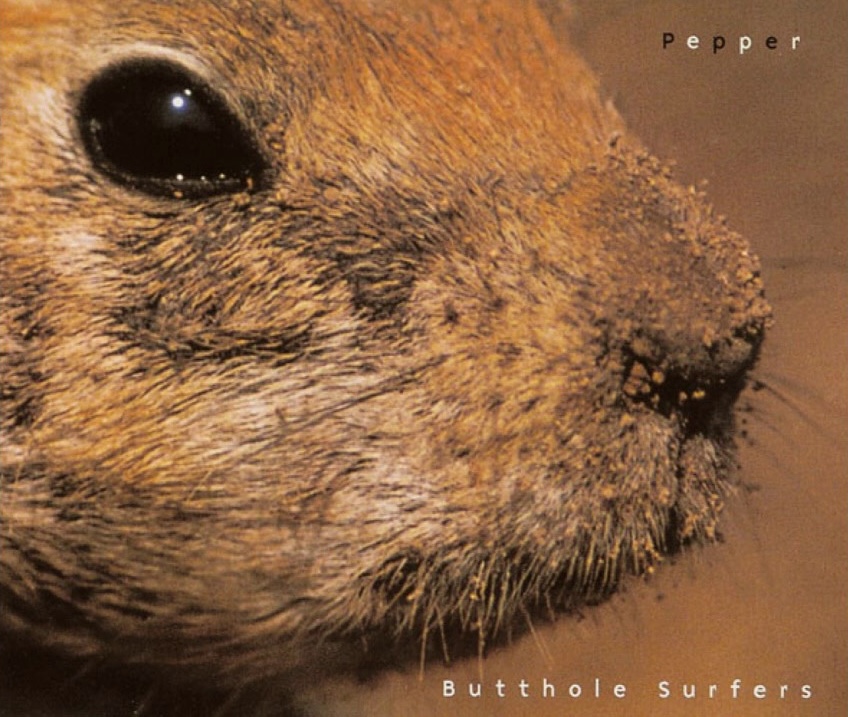About three hours after the conclusion of yesterday's titanic Tidal announcement, Billboard posted a story called "8 Things We Found on Jay Z's Tidal Streaming Service." Those eight things were:
- Rihanna's "Bitch Better Have My Money"
- The White Stripes' Exclusive First TV Appearance
- ?Daft Punk's Electroma Film
- Behind The Scenes Footage of Alicia Keys' Set The World On Fire Tour At Madison Square Garden
- Coldplay's "Songs That Formed The Band" Playlist
- Playlists by Beyoncé, Jack White, Jay Z, Jason Aldean, and deadmau5?
- Videos? (33 in all)
- Taylor Swift (all Swift's albums except her most recent, 1989)
Whether one is compelled by any or all of that content depends on the individual, but there are certain inclusions (and absences) that speak volumes. For instance: It's telling that Rihanna dropped "Bitch Better Have My Money" on March 26, four days prior to the launch of Tidal, even though she is a co-owner of Tidal and could have waited to use her new song as leverage for the new service, enticement for potential subscribers. It's telling, too, that none of Tidal's co-owners used the launch as an opportunity to share new music, even though at least two of those artists -- Rihanna and Kanye West -- have albums ready to drop right now.
It's telling that most of the content "found" by Billboard is old and feels a bit dusted-off: The White Stripes' first TV appearance originally aired in 2000. Daft Punk's Electroma film came out in 2006. The behind-the-scenes footage of Alicia Keys' Set The World On Fire Tour dates back to 2013. It's not exactly a documentary; it's three minutes of video. At the time that footage was shot, Keys was touring behind Girl On Fire, the worst-selling album of her career to date. At the time, too, Keys was the "Global Creative Director" for BlackBerry. That arrangement ended in 2014, which is just as well: Tidal's corporate "partner" ("parent"?) is Sprint, and right now, Sprint offers a service plan for only one BlackBerry device: the Q10 -- you have to scroll all the way down the page to find it, past nine Samsung devices. (Coincidentally, you might recall, Tidal co-owner Jay Z's last album, 2013's Magna Carta Holy Grail, was initially released exclusively to Samsung Galaxy owners.)
Then there are the playlists. Coldplay's "Songs That Formed The Band" playlist includes the Verve's "Bitter Sweet Symphony," Radiohead's "Paranoid Android," and R.E.M.'s "Nightswimming." Beyoncé's list is her "festival favorites"; Aldean's is his favorite party songs. Some combination of hubris and laziness has led these artists to believe this content is even remotely engaging, much less something that might help to justify a monthly subscription fee.
It's telling, too, that the most valuable and substantial bit of content mentioned here is Swift's pre-1989 catalog, while Swift herself was notably absent from that stage yesterday afternoon. Presumably Swift's countless corporate sponsorships and partnerships preclude her from taking the stage as a representative of Sprint. Presumably Swift also knows, though, that her brand is better served by this:
Than this:
It's equally telling that Swift did not include 1989 among her Tidal offerings. Swift's newest album is still selling enough that the royalty rate paid to her by Tidal would presumably represent a net loss. But don't mistake Swift's limited involvement for a vote of confidence: Even when Swift pulled her music from Spotify, her pre-1989 albums were still available in the paid tiers of Rdio and Rhapsody. Spotify doesn't allow for such stratification: All music offered on the service is available to all subscribers.
In an interview with Billboard, conducted before the Tidal announcement but published at the moment of its conclusion, Jay Z talked a bit about the service. There's a lot there, and I encourage you to read the whole thing, but I've pulled out a few of the sections that jumped out at me:
Each first-tier person [i.e., the co-owners named yesterday] has equity in the company?
Yes.
Is it the same equity across the board?
Yes. We're super-transparent, and I think that's part of it. We want to be transparent, we want to give people their data; they can see it. If somebody streams your record in Iowa, you see it. No more shell games. Just transparency.
So the founding members all got the same equity, and now we have a second round and everyone gets the same in that one as well, but it's not as large as the first tier. We want to keep it going. We want to make this thing successful and then create another round and another round. That's the dream, that's the utopia. Everyone is sharing in it; everyone is some kind of owner in it in some kind of way.
I'll come back to the concept of transparency, but a quick response to his claim regarding utopian equity (not to be confused with "equality"): As I read it, Tidal's founding mothers and fathers get the highest number of shares in the company. The next round of "members" get a smaller number of shares. The third round gets a smaller number still. Read this again: "We want to keep it going. We want to make this thing successful and then create another round and another round." So at a certain point, new members will get a microfraction of the equity held by the founding members -- even though many (if not all) of those founding members are ALREADY EVEN TODAY past their respective commercial peaks, while the new lower-equity members would be delivering vital music.
Back to transparency. Here's another choice exchange:
Twelve months from now, what would be your definition of success with Tidal? It doesn’t sound like it's a financial benchmark.
If everyone says, "Wow, so many things have changed. This has gotten better. I like what's happening." If Aloe Blacc and his writers, the guys he wrote with, are not seeing a $4,000 check from 168 million streams.
Jay is using an example offered by Blacc himself, via a 2014 op-ed in Wired. Wrote Blacc:
Consider the fact that it takes roughly one million spins on Pandora for a songwriter to earn just $90. Avicii's release "Wake Me Up!" that I co-wrote and sing, for example, was the most streamed song in Spotify history and the 13th most played song on Pandora since its release in 2013, with more than 168 million streams in the US. And yet, that yielded only $12,359 in Pandora domestic royalties -- which were then split among three songwriters and our publishers. In return for co-writing a major hit song, I've earned less than $4,000 domestically from the largest digital music service.
Both Jay and Blacc are being a little disingenuous: The 168 million streams of "Wake Me Up!" via Pandora generated $12,359, which was split three ways. Of course, Pandora functions more like a radio station than a streaming service -- Tidal is not competing with Pandora; it's competing with Spotify and (soon) Beats Music. Blacc never disclosed what he was paid for the 200 million-plus streams of "Wake Me Up!" on Spotify (the song was indeed the service's most-played as of February 2014 -- although it has since been surpassed). We can speculate, though.
For some context, consider this 2014 article in TIME. Spotify disclosed that it pays between $0.006 and $0.0084 per stream. Based on those numbers, "Wake Me Up!" should have generated between $1,200,000 and $1,680,000 in royalties. And based on those numbers, would Jay not consider Spotify a successful model?
Maybe not. No doubt artists would like to be paid more for their work. But Tidal is no more transparent than Spotify -- in fact, it's considerably less transparent at this point. Spotify is open about its payouts. Tidal is barely even open about its ambitions.
As for the soon-to-relaunch Beats Music, Jay was even less committal:
You have a long-standing relationship with [Beats Music's] Jimmy Iovine. Have you been in contact with him since the news has started trickling out?
Yeah, of course. My thing with Jimmy is, "Listen, Jimmy; you’re Jimmy Iovine, and you're Apple, and truthfully, you're great. You guys are going to do great things with Beats, but ... you know, I don't have to lose in order for you guys to win, and let's just remember that." Again, I'm not angry. I actually told him, "Yo, you should be helping me. This is for the artist. These are people that you supported your whole life. You know, this is good."
This is almost 100% false. In fact, the timing of the Tidal launch suggests that Jay is scrambling to acquire market share before Beats can claim theirs; it would appear that Tidal was rushed to market for the sole purpose of getting there before the Beats relaunch, which is expected to come next month, along with iOS 8.4. Consider this: Jay bought the Swedish service Aspiro, Tidal's parent company, less than a month ago.
Beats gestated for quite a while longer than that. I sat in two meetings with representatives from Beats Music (this was before the service was launched at all, long before it was obtained for relaunch by Apple) and in those meetings, the Beats reps basically said that their goal for the service was to be as big as Netflix: Everyone and their mom had to be a paid subscriber. (They actually said, almost verbatim, "We need your mom to subscribe to this. This has to be a service your mom would use.") To give you an idea what that means: Netflix has 57 million paid subscribers. By comparison, Spotify has 15 million. For a service such as this to be viable, it has to be just about ubiquitous, if not quite a monopoly. Tidal does have to lose in order for Beats to win, because for Beats to win, it needs to obtain a market share that would render Tidal extremely marginal and erase Spotify altogether.
Speaking of Spotify...
Can you say definitively that [artists] are going to make more money from Tidal than Spotify?
It's not me against Spotify, but for us, you know, just the idea of the way we came into it, with everyone having equity, will open the dialogue -- whether it be with the labels, the publishers or whoever ... Will artists make more money? Even if it means less profit for our bottom line, absolutely. That's easy for us. We can do that. Less profit for our bottom line, more money for the artist; fantastic. Let's do that today.
That's not an answer. The real answer is "no" -- he cannot say definitively that artists will make more money from Tidal than Spotify. If he were being honest, he would say, "It is extremely unlikely." Instead, he's just babbling. In fairness, it's not out of the realm of possibility -- it is extremely unlikely but not impossible -- but it would require Tidal to achieve Beats' goal of becoming as big as Netflix AND for Tidal to pay out higher percentages to artists than Spotify does (note too that Spotify is still not a profitable enterprise, and that the majority of its revenue goes to artists and labels for royalty payments). As of today, though, Tidal isn't sharing the details of their payout system. And unless you consider old videos and thrown-together playlists to be "something," you might say they're sharing nothing at all.
What they will share remains to be seen. I don't think we'll ever see financials, because I don't think the service will survive long enough for that to become an issue, but I am curious to see how much its co-owners commit to the service. For instance: Will Kanye's new album be streamed exclusively on Tidal? And will that lead to millions of new Tidal subscriptions?
I doubt it. I would go so far as to bet against it. That would only underscore how little Kanye's music contributes to Kanye's public profile. Yeezus was certified platinum even though it actually sold only 630,000 copies. But people -- present company absolutely included -- talked about that thing like it was Thriller. And people listened to that thing like it was Thriller! If Kanye were to limit his new album's reach to Tidal users, fewer people would talk about it; fewer people would listen.
He won't do that. What he will do with Tidal in the future, though, and what he's doing with Tidal now? I have no idea. No one does -- maybe not even the owners themselves.
[Photo by Jamie McCarthy/Getty Images for Roc Nation.]
An earlier version of this story incorrectly suggested that Spotify's royalty payments went directly to the songwriters behind "Wake Me Up!" In fact, those payments were made to the record label and publisher to whom the song was assigned by its writers.






